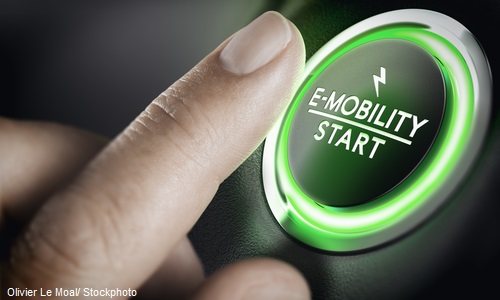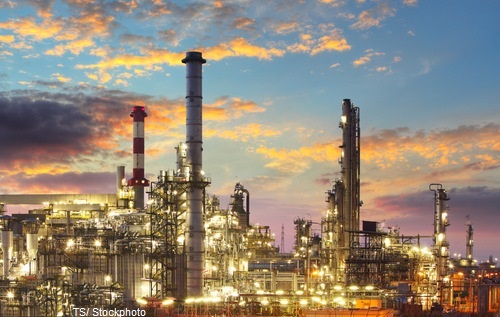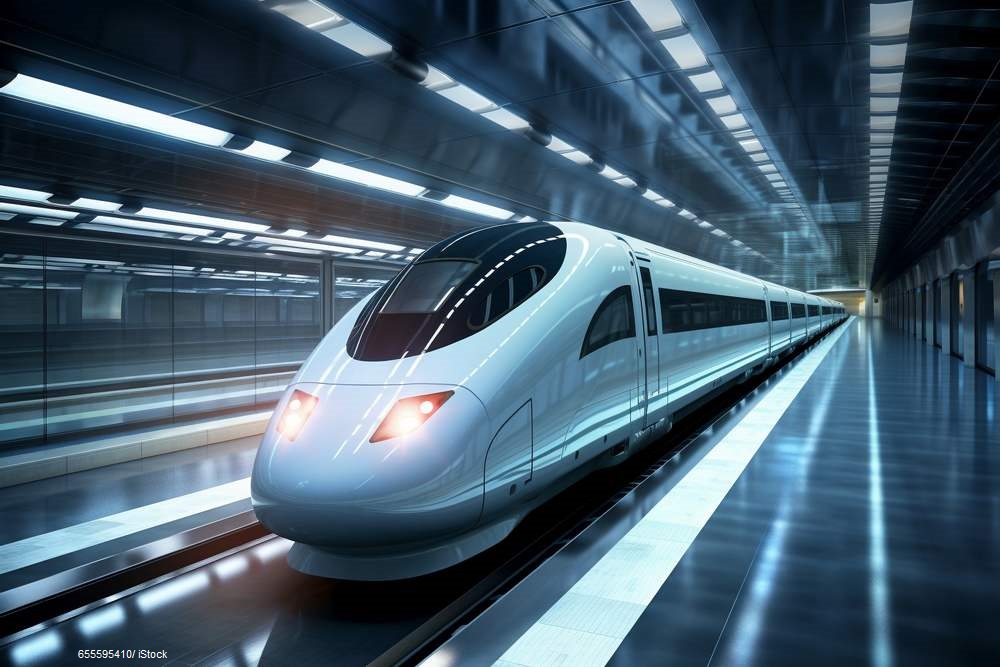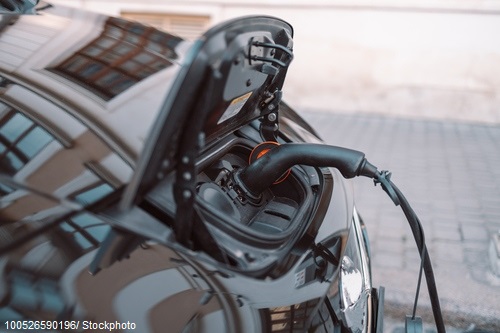Market for EV charging stations in South Korea has high growth potential
With the increasing number of EVs in South Korea, the market for corresponding charging stations is also growing. Therefore, many large companies are entering the field of charging stations and infrastructure, some of them even with only this main business. As the business magazine “Business Korea” writes, almost all major domestic companies are now active in the EV charging business. Apart from Samsung, South Korea’s four largest conglomerates have entered the market, either by acquiring companies or providing their own services. In many cases, products from the fields of batteries and electromobility in general require KC Certification for Korea in order to be approved for import and sale there.

SK Group is the most active group and has several subsidiaries in the EV charging business: SK Signet manufactures EV charging stations, SK electlink operates the largest network of charging stations in the country and SK E&S provides charging stations for car parks. Competitor LG Electronics, on the other hand, acquired “Apple Mango” to accelerate its entry into this business and later renamed it HiEV Charger. Founded in 2019, HiEV owns proprietary technologies for charging stations.
As a manufacturer of EVs, the Hyundai Motor Group focuses on setting up and operating fast-charging stations. For this purpose, the subsidiary “Korea Electric Vehicle Charging Service” was founded, in which Hyundai and Kia each invested 23 million US dollars. The fast-charging stations have a special function called “Plug&Charge”, which automatically handles authentication, charging and payment. Hyundai plans to build 3,000 fast-charging stations in South Korea by 2025. The fourth group to enter the charging business is Lotte Group. For this purpose, the IT subsidiary Lotte Information Communication has taken over the infrastructure company Joongang Control, formerly EVSIS. As a goal of the takeover, around 13,000 EVSIS charging stations are to be built at important urban parking facilities by 2025. Furthermore, Lotte IC has good chances of winning contracts abroad. In Indonesia, for example, the relocation of the capital Jakarta is creating a new “smart city” that requires EV charging infrastructure in large supermarkets and shopping centres.
The reason for the strong commitment of the large corporations in South Korea to the charging business lies in the high growth opportunities. The German consultancy Roland Berger, for example, estimates that the global EV charging business will grow sixfold from its current value of 55 billion US dollars to 325 billion US dollars by 2030. Despite the good market prospects, the coverage with charging stations in South Korea is insufficient. According to information from the relevant ministries, the number of electric cars is around 424,200, but there are only just under half of the charging stations available, around 225,730.
We offer certification services for all product sectors, including KC certification for consumer products and especially electronics, KC-EMV certification for electronic products and KCs certification for machinery as well as KCs for explosion-proof products. We are at your disposal for all questions regarding Korea certifications.
Feel free to contact us any time if you need assistance or have any questions regarding Korean certifications like KC, KC EMC, KCs, KCs for explosion safety products or KGS factory registration.
Tel. Europe: +49-69-271 37 69 261
Tel. US: +1 773 654-2673
Email: info@korea-certification.com
For more information you can download our free brochure “Korea Certification Made Easy – The Booklet“.
Posco celebrates Groundbreaking for Lithium Hydroxide Plant in South Korea
Posco Holdings, the parent company of the world’s sixth-largest steelmaker, celebrated a groundbreaking ceremony on 13 June 2023 to begin construction on a lithium hydroxide plant. Located in the Yulchon 1 Industrial Complex in South Jeolla Province, the plant is part of Posco Group’s strategic plan to further expand its battery value chain. The focus is on raw materials such as lithium and nickel, materials for battery production and the recycling of used batteries. As the business newspaper KED Global writes on its website, the new factory is expected to be able to produce around 25,000 tonnes of lithium hydroxide per year. This amount is enough for about 600,000 EV batteries. The investment sum for the project is estimated at 450 million US dollars, and the plant is scheduled to start operations in 2025. Posco Lithium Solution, a subsidiary of Posco Holdings, will finance, build and operate the plant. Machinery equipment and other products involved in production often require KC Certification to be approved for import and operation in Korea.

In a pioneering move by purchasing a salt lake in Salta, Argentina, in 2018, Posco Holdings became the first South Korean company in Argentina’s lithium business. The company confirmed that the new factory was part of an investment in Argentina announced in October last year. While lithium hydroxide will be produced domestically, the feedstock lithium carbonate will be extracted from the Argentinian salt lake. By 2028, Posco Holdings plans to increase lithium production to 100,000 tonnes by using this salt lake. In other business activities, Posco Group is building a spodumene lithium ore plant for Posco-Pilbara Lithium Solution and operating an electrode material factory for Posco Future M. In addition, a battery recycling plant is to be built by Posco HY Clean Metal. All of the aforementioned projects are being built in the Yulchon Industrial Complex and are intended to make this location a hub for battery production.
Feel free to contact us any time if you need assistance or have any questions regarding Korean certifications like KC, KC EMC, KCs, KCs for explosion safety products or KGS factory registration.
Tel. Europe: +49-69-271 37 69 261
Tel. US: +1 773 654-2673
Email: info@korea-certification.com
For more information you can download our free brochure “Korea Certification Made Easy – The Booklet“.
Hyundai Rotem presents scale model of hydrogen train
Already for the eleventh time, the Korea Railways & Logistics Fair took place in the BEXCO exhibition halls in Busan in mid-July. The South Korean railway manufacturer Hyundai Rotem, a subsidiary of the Hyundai Motor Group, participated in the largest domestic railway fair and presented its latest technologies and vehicles. According to Hyundai Rotem’s own information, their stand area under the motto “H-Flow” was about 3,700 square metres. H-Flow” represents the company’s vision of passenger-friendly trains, new technologies and environmentally friendly hydrogen powertrains. Hydrogen propulsion production uses, among other things, pressure vessels that usually require KGS registration to be approved for import in Korea.

At the entrance to the stand, visitors saw a model of the EMU-320 high-speed train developed in South Korea, as well as an exhibition on the history of high-speed rail in the country. The exhibition gives visitors an overview of the 20-year history of high-speed trains in South Korea, which began with the opening of the Seoul-Busan line in 2004. In another stand area dedicated to hydrogen technology, Hyundai Rotem presented a scale model of a hydrogen-electric train as a premiere. The railcar is currently being supervised as a demonstration project by the Ministry of Trade, Industry and Energy and is expected to be operational by the end of the year.
The hydrogen-electric train is designed to help improve the urban environment in the CO₂-neutral era. In June, the train won first prize at the iF Design Award 2023, making it the first railway vehicle to receive such an award. At its stand, Hyundai Rotem showed other examples of its trains such as the electric GTX-A for the Seoul metropolitan area, double-decker trains for Sydney, Australia, electric commuter trains for the railway adminstration of Taiwan and a tram for the Polish city of Warsaw. Furthermore, visitors could experience the operation and maintenance of trains via virtual reality (VR) and augmented reality (AR).
Feel free to contact us any time if you need assistance or have any questions regarding Korean certifications like KC, KC EMC, KCs, KCs for explosion safety products or KGS factory registration.
Tel. Europe: +49-69-271 37 69 261
Tel. US: +1 773 654-2673
Email: info@korea-certification.com
For more information you can download our free brochure “Korea Certification Made Easy – The Booklet“.
Renault plans new EV plant at its Busan site in Korea
French carmaker Renault S.A. plans to build a new EV plant in South Korea to meet rising demand for environmentally friendly vehicles in Asia. Renault, the world’s fourth-largest carmaker, plans to build the plant with an annual production capacity of 200,000 EVs in Busan, where the French company already has a manufacturing base. In many cases, products from the fields of batteries and electromobility in general require KC Certification for Korea in order to be approved for import and sale there.

The news was announced by Guido Haak, vice-chairman of the Renault Group during a meeting with Busan Mayor Park Heoong-joon in Paris. Park went to Paris as part of a delegation with South Korean President Yoon Suk Yeol to attend the General Assembly of the Bureau International des Expositions (BIE). The BIE is the organiser of the “Expo” fairs, and South Korea is bidding with Busan for the Expo in 2030. Busan is a long-standing Renault site, where seven car models and around 250,000 vehicles a year currently rolling off the production line.
According to Renault Vice President Haak, the Busan plant is an important location for the carmaker. If the project is successfully executed, Renault would be the first foreign car brand with its own EV production in South Korea. Industry insiders estimate that Renault will invest more than €773 million in the construction. Taking into account the construction period, experts say the EV plant could start operations in early 2027. An official at the French company’s South Korean subsidiary, Renault Korea Motors Co, said the EV production facilities will be located in existing facilities.
Feel free to contact us any time if you need assistance or have any questions regarding Korean certifications like KC, KC EMC, KCs, KCs for explosion safety products or KGS factory registration.
Tel. Europe: +49-69-271 37 69 261
Tel. US: +1 773 654-2673
Email: info@korea-certification.com
For more information you can download our free brochure “Korea Certification Made Easy – The Booklet“.



